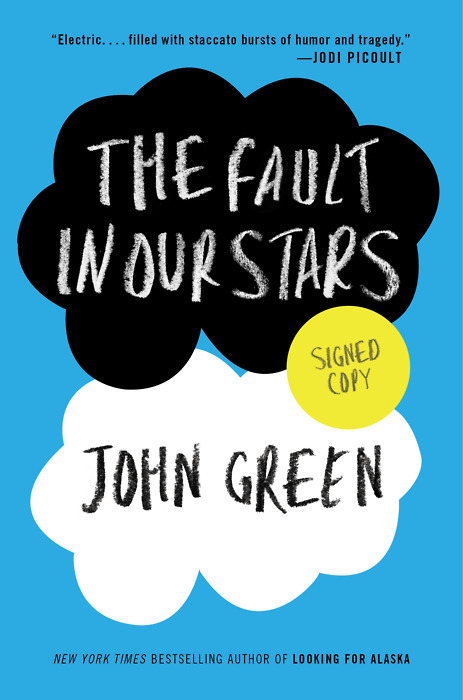I think I should start by saying that I did enjoy this book. For everything else this book caused, I at least wanted to read it and found it generally fulfilling. However, a book about two teenagers with cancer was never going to be a happy, pick-me-up book.
Hazel is the main protagonist, with terminal cancer. Her life is being prolonged by experimental medicines but, as she constantly reminds the reader, she will die eventually. She meets Augustus “Gus” at a support group for teenage sufferers. The book from there on details their growing relationship and love for each other.
Before reading this book, I had received mixed views on it. Most official reviews were positive with many authors proclaiming it to be a brilliant piece of young adult literature. However, opinions were divided when I asked for thoughts on it. Some criticised the level of writing, claiming it to be poorly written and on par with the Twilight Saga for literary prowess; others found the storyline uninteresting and boring. I have to say, I partially agree about the way it is written. It’s not a complex book and sometimes you wonder whether something was written appropriately. Then there are sections that, to me, seemed perfectly wonderful examples of how books should be scripted. I particularly enjoyed the trip to Amsterdam and the conversations Hazel and Gus have about metaphorical resonances. The ending did seem rushed to me though. It was like there was this massive build-up which ended in this sweet but wholly disappointing finish. I was left with this feeling that book hadn’t ended, but maybe that was the author’s intention.
My main issue with The Fault in Our Stars was the emotions it brought out in me. Now I like a book that makes me think, feel joy, cry a little maybe. I’m not so found of ones that give me recurring nightmares. I had a close friend Charlie pass away after spending a good few years battling a brain tumour. I miss him very much and find I think about him most days. However, this book turned my quiet and fairly manageable sadness into an assault of nightmares, mood swings and listening to the playlist of music, which I made specifically because the songs remind me of him, pretty much on loop. This book brought back the pain from the few days after Charlie died. In a way, this is good because it is now motivating me to do something for Charlie so I can honour his memory. It still hurts though.
I think this book is definitely something every young person should read. The insights into cancer are spot on and it does have a wonderful and heart-breaking plot. On an academic level, it is a good book to critically analyse the writing style. But most of all, it’s a very human book and one which would appeal to lots of young people on the cusp of adulthood.
Kat

